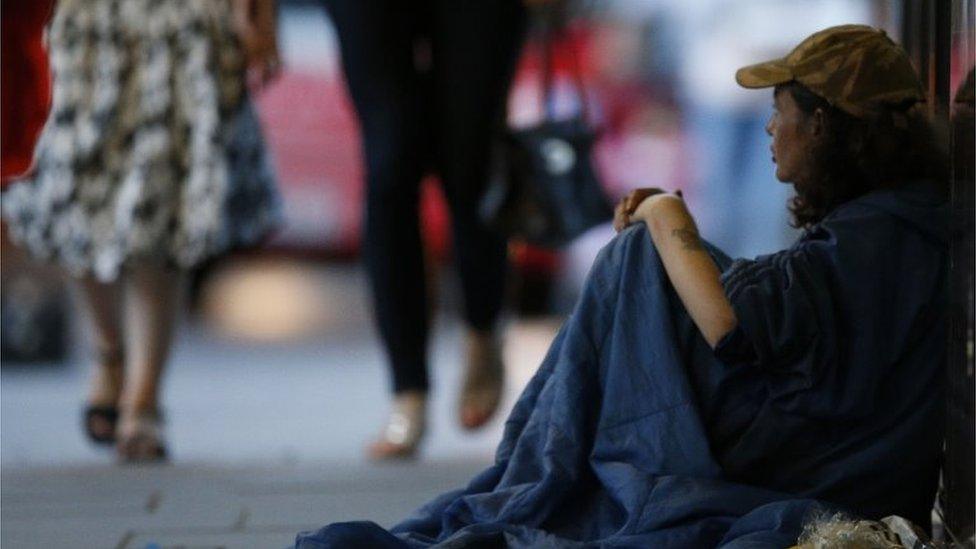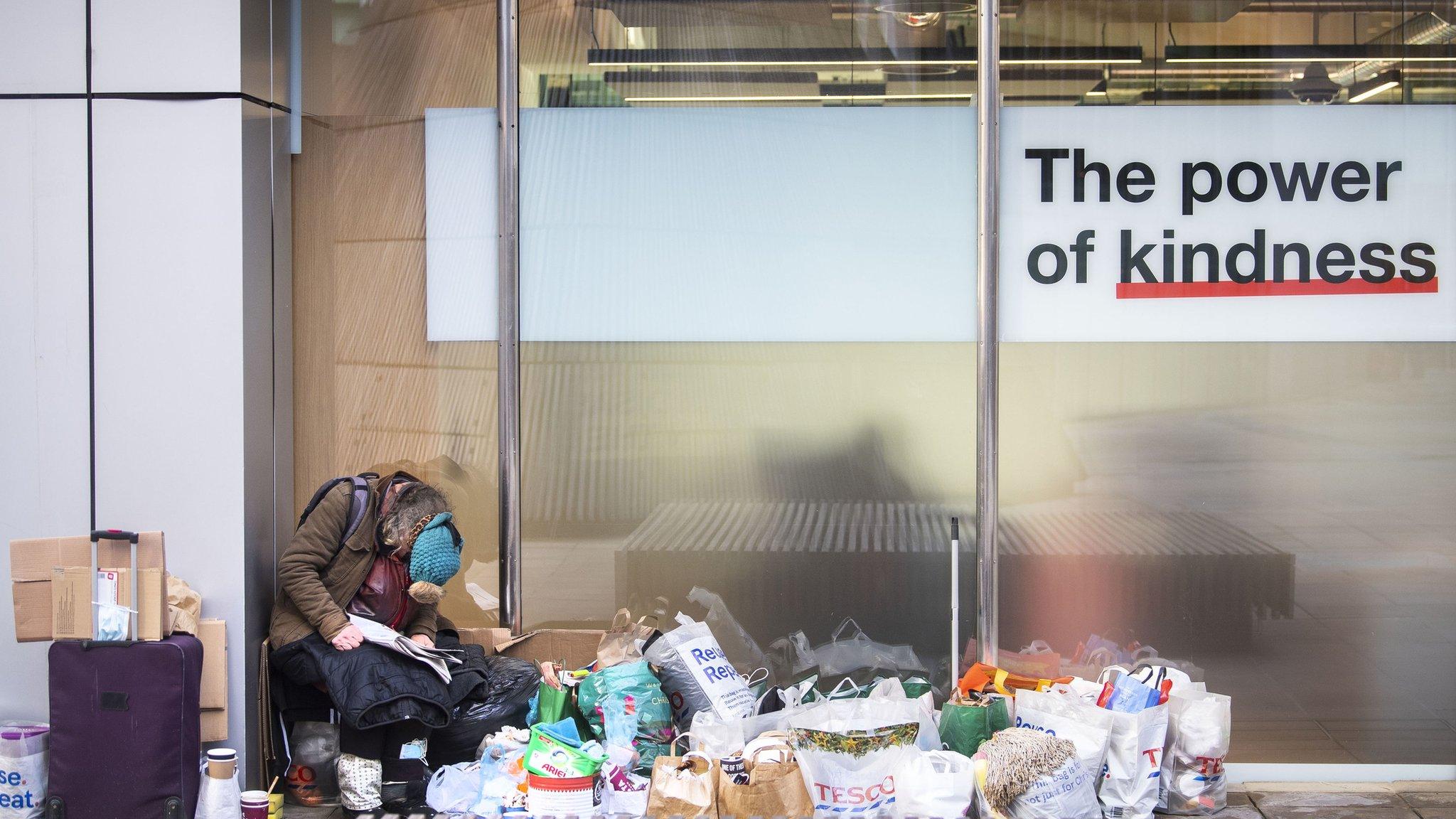Covid: Ministers urged to help tenants and landlords with rent arrears
- Published

The government should provide financial help to tenants and landlords in England dealing with rent arrears built up as a result of Covid, MPs have said.
The housing committee warned that ministers are in danger of breaking their pledge that nobody should lose their home as a result of the pandemic.
It also said the government's efforts to take all rough sleepers off the streets are now effectively over.
The government said this claim was misleading.
A spokesman said the government spent over £700m this year and £750m next year on tackling homelessness and rough sleeping.
A Resolution Foundation report produced last month found that almost half a million families had fallen behind on rent as a result of the coronavirus crisis.
A ban on landlords in England evicting tenants, introduced during the pandemic, has been extended several times and is currently due to expire at the end of May.
Ministers have suggested there will be no more extensions and that from June the government would introduce a "new approach".
The Housing, Communities and Local Government Committee said many renters would be at risk of becoming homeless when the evictions ban ends.
It added that this problem would be exacerbated by rising unemployment as government support schemes taper off.
To prevent a rise in homelessness, MPs said the government should provide specific targeted support to tenants to repay rent arrears built up over the last year.
They estimated this would cost between £200m and £300m and would reduce expenditure on homelessness assistance in the longer term.
A spokesman also said it had given renters "robust protection" during the pandemic, "with longer notice periods of six months and banning bailiff enforcement of evictions for all but the most serious cases until 31 May".
Welcoming the committee's report, the National Residential Landlords association said it highlighted a "lack of a clear strategy from the government".
Its chief executive Ben Beadle said there needs to be "action to tackle rent debts built as a result of the pandemic".
"Making direct payment to landlords" would be "the best way to sustain tenancies and help landlords receive income", he said.
Everyone In?
The committee praised the "enormous success" of the initial stages of the Everyone In Scheme which sought to house rough sleepers during the pandemic.
The scheme helped more than 37,000 people into accommodation and University College London has estimated that as of December 2020, it had prevented 242 deaths.
However, the MPs said a change in government policy in May 2020 meant some people were being left out.
Initially, ministers had encouraged local authorities to help those who had No Recourse to Public Funds (NRPF) - people whose temporary immigration status means they cannot access most financial state support.
But councils were later told they should use their judgement when deciding whether to help those with NRPF.
The committee said this led to confusion and saw many denied support.
"Everyone In by definition has finished as it is no longer helping all those in need of accommodation," said committee chair Clive Betts.
The High Court recently ruled that councils should help house people with NRPF during the pandemic - and the committee urged ministers to reflect this in their guidance to local authorities.
Chief executive of homeless charity Crisis, Jon Sparkes said: "There is no doubt that government action to protect those facing, and at risk of, homelessness during the pandemic transformed lives and prevented many people from destitution.
"The report highlights the need to look beyond the emergency response to achieve lasting change and real progress towards ending homelessness."
Mr Sparkes said there should be an emphasis on "preventing homelessness before it happens. Addressing the poor supply of social homes and a financial support package for renters in arrears due to the pandemic must be an integral part of this."
Responding to the report, the government said: "Everyone In is still ongoing and for the committee to suggest otherwise is misleading.
"We are also working with partners to learn any lessons from the pandemic and as part of our ambitious plans to end rough sleeping for good."
- Published10 March 2021

- Published11 March 2021
